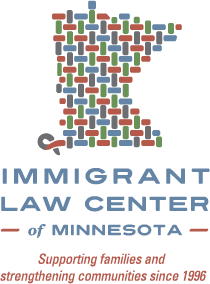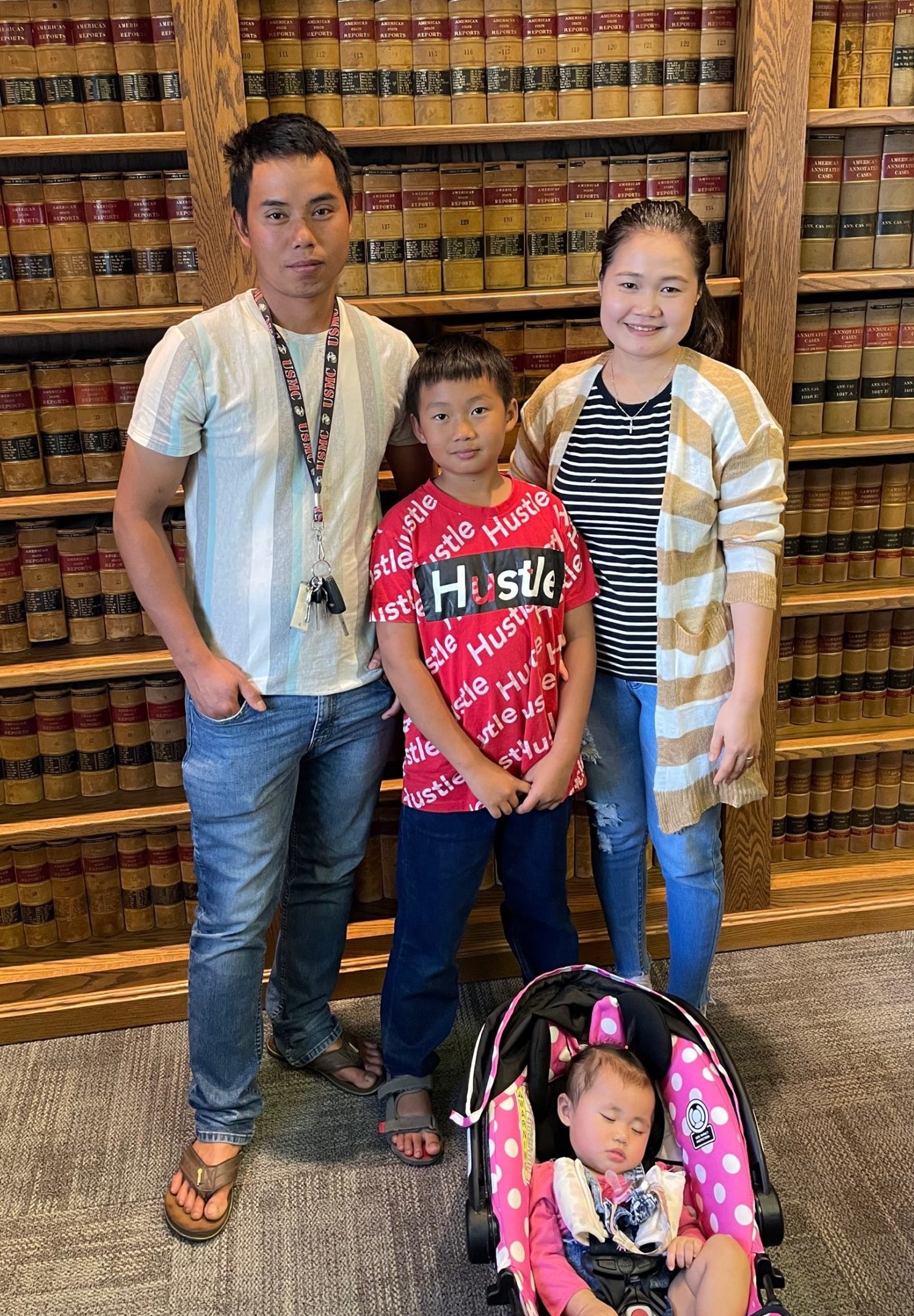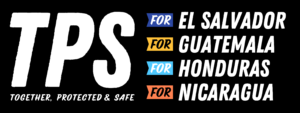This fact sheet is current as of 9.26.2022. It is not legal advice.
Printable PDF of this fact sheet.
On Monday, September 26, 2022, Secretary of Homeland Security Alejandro N. Mayorkas announced an extension of the current Temporary Protected Status (TPS) for Burma for an additional 18 months, from November 26, 2022, through May 25, 2024, due to extraordinary and temporary conditions in Burma that prevent individuals from safely returning. In addition, the Department of Homeland Security (DHS) announced a redesignation of Burma for TPS for the same reason, allowing Burmese nationals (and individuals having no nationality who last habitually resided in Burma) residing in the United States as of September 25, 2022, to be eligible for TPS.
TPS for Burma was originally designated on Friday, March 12, 2021, for 18 months through November 25, 2022.
What is temporary protected status (TPS)?
The Secretary of the Department of Homeland Security (DHS) grants TPS to individuals from designated countries who are unable to return home safely due to conditions or circumstances in their home countries.
During the designated TPS period, TPS holders are allowed to live in the United States and cannot be detained by DHS just on the basis of their immigration status. TPS holders are eligible to apply for an employment authorization document (EAD) and for travel authorization.
What does the extension of TPS for Burma (Myanmar) mean?
If you have TPS under the current designation for Burma, you can apply to extend TPS. To receive the TPS extension, you must re-register for TPS by applying during the 60-day re-registration period from September 27, 2022 through November 26, 2022. If approved, your TPS and EAD will be extended until May 25, 2024.
Note: It is important for TPS holders to re-register during the registration period. Do not wait until your Employment Authorization Document (EAD) expires. This could result in gaps in your employment authorization documentation.
What does the re-designation of TPS for Burma (Myanmar) mean?
This new designation enables citizens of Burma and individuals without nationality to file applications for TPS if (1) they were living in Burma (Myanmar) right before coming to the US, and (2) they have resided continuously in the United States since September 25, 2022. If you left for any reason, talk to an immigration attorney.
The initial registration period for new applicants under the Burma TPS redesignation begins on September 27, 2022 and will remain in effect through May 25, 2024. Other eligibility requirements are described in the Federal Register Notice (FRN).
When can I apply for TPS for Burma?
If you currently have Burmese TPS: Under Burmese TPS, the re-registration period for current TPS for Burma holders is from September 27, 2022 through November 26, 2022.
If you are applying for Burmese TPS the first time: The initial registration period for new applicants under the Burma TPS redesignation begins on September 27, 2022 and will remain in effect through May 25, 2024.
How long will I have protection under TPS for Burma?
The designation period determines how long TPS and the protections under TPS are valid. TPS is a temporary status. The Secretary of Homeland Security Alejandro N. Mayorkas is extending Burma (Myanmar) for TPS for until May 25, 2024. TPS status can, however, be extended.
Who is eligible for TPS under the Burma (Myanmar) designation?
Burmese nationals who do not have legal status in another country, and people without nationality who last regularly lived in Burma (Myanmar) and who currently live in the United States may file applications for TPS. They will have to prove that they resided continuously in the United States as of November 26, 2022.
People interested in TPS must file an application with U.S. Citizenship and Immigration Services by November 26, 2022 if they are re-registering, or by May 25, 2024 if they are initial applicants. They may also apply for Employment Authorization Documents (EADs) and for travel authorization. All individuals applying for TPS undergo security and background checks as part of determining eligibility. More details about the eligibility criteria to submit an initial TPS application and apply for an EAD can be found in the Federal Register Notice (FRN).
Is TPS status given automatically?
No, TPS is not automatic. People must apply, pay a filing fee, and pass immigration screening. There are some facts that will make a person ineligible for TPS. For example, people with certain criminal convictions or who violated the human rights of others are not eligible for TPS. People who are inadmissible under certain sections of the law may have to file a waiver before they can be approved for TPS status. The application process can be complicated, and we recommend working with an immigration attorney.
I have been in the United States since before September 25, 2022, but I have left for short periods of time. Can I apply for TPS?
Maybe. Whether you still qualify for TPS depends on the length and nature of your time outside of the United States. Please contact an immigration attorney to discuss your situation further.
I am from Burma (Myanmar), and I came to the United States as a refugee. Do I need to apply for TPS?
No. People who are in the US with refugee status can live and work here and apply for permanent resident status after one year. They do not require TPS.
I am from Burma (Myanmar), and I now have a green card. Do I need to apply for TPS?
No. As a permanent resident, you have legal status in the US and are on a path to citizenship. You do not need and would not qualify for TPS.
I am from Burma (Myanmar), and I am in deportation proceedings. Can I apply for TPS to avoid deportation?
Yes. A person in removal proceedings can apply for TPS, and if approved, can request that the judge put the removal case on hold until TPS is approved, and then for the time it is in effect.
I am from Burma (Myanmar), and the police have given me tickets here. Can I apply for TPS?
Maybe. You need to show your tickets to an immigration lawyer before filing. A person with two misdemeanors or one felony cannot get TPS. A lawyer can tell you if the tickets will be a problem.
Which people from Burma (Myanmar) should consider applying for TPS?
People who are here with no legal status should consider applying. Also, those who are here on a visa that is for a limited time or that does not allow for working might also benefit by receiving Temporary Protected Status. Having TPS does not hurt anything.
*If you are from Burma (Myanmar) and came to the United States on a F1 student visa, contact your school’s international student office for more information.
Get Help
The Immigrant Law Center of Minnesota (ILCM) provides free immigration legal services to low-income immigrants in a variety of immigration matters. For more information about how we can assist you, please visit our website at www.ilcm.org or call us at (651) 641-1011.
 According to the American Immigration Council, roughly 5% of North Dakota’s population was born in another country, while another 5% are native-born U.S. citizens with at least one immigrant parent. Immigrants are an integral part of the North Dakota workforce in a range of occupations. In 2018, 25,558 immigrant workers comprised 6% of the labor force (American Immigration Council).
According to the American Immigration Council, roughly 5% of North Dakota’s population was born in another country, while another 5% are native-born U.S. citizens with at least one immigrant parent. Immigrants are an integral part of the North Dakota workforce in a range of occupations. In 2018, 25,558 immigrant workers comprised 6% of the labor force (American Immigration Council).






